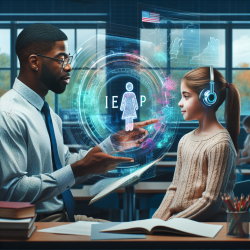Introduction
The Ottawa Psychiatry Enrichment Program (OPEP) has emerged as a pivotal initiative aimed at enhancing medical students' perceptions of psychiatry and increasing recruitment into the field. This blog delves into the findings of a recent study on OPEP, highlighting its impact on students' attitudes and recruitment rates, and discusses how these insights can be leveraged by practitioners to improve outcomes in online therapy services for children.
Understanding the OPEP Study
The study evaluated the efficacy of OPEP, a week-long program designed for 1st and 2nd-year medical students, in improving attitudes towards psychiatry. Utilizing the Attitudes Towards Psychiatry Questionnaire (ATP-30), the study measured students' attitudes before and after the program, and again 2-3 years later. The results revealed a significant improvement in attitudes immediately following the program, although these gains diminished over time.
Key Findings and Implications
The study found that:
- PostOPEP ATP-30 scores were significantly higher than PreOPEP scores, indicating an immediate positive shift in attitudes.
- 43% of OPEP attendees matched to psychiatry residency programs, demonstrating the program's effectiveness in recruitment.
- Attitudes towards psychiatry showed a moderate decline over 2-3 years, suggesting a need for strategies to sustain improvements.
These findings underscore the potential of enrichment programs to positively influence career choices in psychiatry. For practitioners in online therapy services, these insights can inform strategies to engage and retain interest in specialized fields.
Strategies for Sustaining Improvements
To maintain the positive impact of programs like OPEP, it is crucial to implement strategies that reinforce and sustain improvements in attitudes. These could include:
- Regular follow-up sessions or refresher courses to keep participants engaged and interested.
- Incorporating mentorship programs that connect students with professionals in the field.
- Utilizing digital platforms to provide ongoing learning and networking opportunities.
For online therapy services, these strategies can enhance professional development and ensure that practitioners remain motivated and informed about advancements in their field.
Conclusion
The OPEP study highlights the significant role that enrichment programs can play in shaping medical students' attitudes towards psychiatry and increasing recruitment into the field. By adopting similar strategies, practitioners in online therapy services can improve outcomes for children and contribute to addressing the shortage of specialists in psychiatry.
To read the original research paper, please follow this link: A week long “pep” talk – initial and 2–3-year longitudinal data on the Ottawa Psychiatry Enrichment Program (OPEP).










